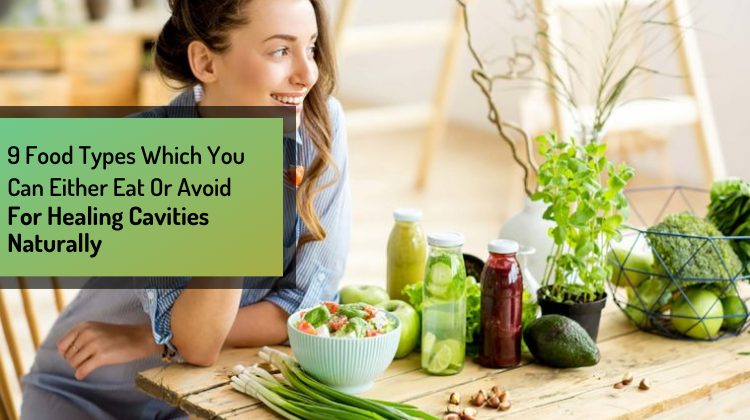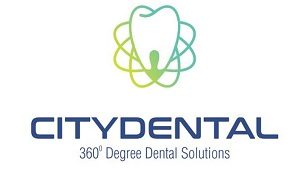
Cavities are like weed grass, once they take root in the soil, getting rid of them entirely is next to impossible. So ideally, the best way to avoid cavity problems is to prevent them from forming in the first place. However, despite all our hygiene efforts, some acid or microbes may succeed in decaying a part of a tooth and cause a cavity outbreak in our teeth. And even though dental fillings are considered to be an ideal treatment for dealing with cavities, you can actually heal small cavities simply by altering some food items in your diet.
As there are some food items which cause cavities in our teeth, there are other foods which can help prevent and heal cavities. Here, we’ll discuss in detail some of the essential types of food which can either eat or avoid to help your teeth remain cavity-free:
Food Types That Defend Your Teeth And Heal Cavities:
These are the type of nutrients which you should consume through foods that contain these nutrients in abundance.
Calcium-Rich Foods:
This is the most obvious and widely known nutrient for healing and nurturing your teeth and they are the basic building blocks.
The primary source for your calcium can be all dairy products. And even if you’re lactose intolerant and cannot consume any dairy products, there are other food items such as broccoli, cabbage, okra, soya beans, cauliflower, figs, olives, soya drinks, tofu, various nuts, bread, and even fishes like sardines and pilchards, which can be added to your diet for boosting your calcium intake.
Calcium also helps in producing more saliva which resettles the nutrients over your teeth which are flushed away while eating, hence, keeping them strong.
Phosphorus Rich Foods:
Having sufficient intake of phosphorus in the diet has been proven to improve dental health and cavities.
Typically you’d find beans, grains, and nuts to be good sources of phosphorus which is true, but they also contain phytic acid whose disadvantages will be discussed further.
Hence, it is better to stick to phosphorus-rich foods which are without phytic acids such as meat, chicken, eggs, dairy products and some leafy vegetables.
Vitamin D Rich Foods:
Primarily, The function of vitamin D is not to provide any form of nutrients to the body but to help it absorb calcium and phosphorus easily.
Hence, even if you take calcium and phosphorus supplements, they won’t be helpful for your teeth and bones without substantial vitamin D in your body.
And even though standing in the morning sun for a few minutes can do the job, the alternate way to boost your vitamin D intake are foods like cheese, certain mushrooms, egg yolks, cord liver oil and fishes like salmon, tuna, Herring and sardines.
Magnesium Rich Foods:
Magnesium is a major part of balancing and redistributing various minerals in the body. It is also responsible for remineralizing our teeth and maintaining a proper calcium and phosphorus balance.
Spinach, salmon, squash seeds, cacao, blackstrap molasses, and avocado and the most popular sources of magnesium.
Vitamin K2 Rich Foods:
Where vitamin D helps in absorbing calcium and phosphorus, vitamin K2 helps in regulating various minerals in the body and ensuring that our teeth are remineralized with calcium, phosphorus, and magnesium.
You can consider including aged cheese, cod liver oil, egg yolks, chicken liver, and ground beef in your diet for maintaining a balanced Vitamin K2 intake.
Food Types That Attack Your Teeth And Cause Cavities:
Now, here are some food items which you can try and avoid or at least consume in moderation to avoid worsening of your cavity situation.
Phytic Acid Rich Foods:
Phytic is typically found in various grains and is widely known as an antinutrient which absorbs certain nutrients and minerals and hampers the remineralization process.
Hence, grains like wheat, beans, rice, almonds, soybeans, corn, lentils, should be eaten in moderation and should be replaced with other foods wherever possible.
Simple Starch Rich Foods:
The simple starch present in foods such as pasta, white bread, white rice, etc. turns into sugar on consumptions and is fed on by the bacteria present in our mouth.
This helps the bacteria to proliferate and cause damage to the teeth.
If this bacterial proliferation continues, it can further lead to complete tooth decay and persistent bad breath. They stick to teeth and difficult to clean also
Sugary Foods and Drinks:
All sweet sugary foods are like a feast for the bacteria that reside in our mouths. The more sugar gets deposited, the stronger they get and the more cavities they create.
Carbonated drinks are equally bad for our teeth which also include the boxed fruit juices with added preservatives.
Also, as these sugary foods don’t contain any essential nutrients, their domination in one’s diet can lead to a nutritional imbalance.
Acidic Foods and Drinks:
Last but always the deadliest; acidic foods and drinks like coffee, sports drinks, alcohol and concentrated citrus fruit juices can attack the tooth enamel directly and encourage decay.
Make sure to rinse your mouth after consuming any acidic substances to prevent their deposition on the tooth enamel.
Additional Tips:
- If you have a sweet tooth, it’s almost impossible to not eat those mouth-watering sweets that emerge around you from nowhere. However, eating those sweets with proper meals can reduce the amount of damage they can cause to the teeth drastically.
- Stop snacking i.e., eating in-between meals to curb fake cravings. And if you are hungry, eat something nutritious.
- Avoid eating substances that dry out the mouth as it encourages tooth decay. If any of your medication is causing such dryness, consult your doctor for alternative medicines.
- And drink enough water daily without fail.
- Brushing twice a day
- Gargling after every food will decrease food getting stuck between the teeth .
